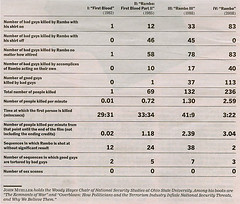Experimental, impressionistic sub-paragraph tumblin' (think obstsalat)
19mar2008
Arthur C. Clarke, 16 December 1917–19 March 2008. RIP.
The truth, as always, will be far stranger. — Arthur C. Clarke
On the Incomparability of Gamma and Linda, by G. Zavattaro. “We compare Gamma and Linda, two of the most prominent coordination languages based on generative communication via a shared data space. In Gamma computation is obtained by applying multiset rewriting rules, reminiscent of the way chemical reactions happen in a solution. On the other hand, Linda permits interprocess communication by means of the creation and consumption of shared data.”
Abracadabra, a tube type bookmark. Fantastic!
Wake up to find out
that you are the eyes of the World
but the heart has its beaches
its homeland and thoughts of its own
— Grateful Dead, Eyes Of The World
Disks have become tapes, how true.
Albert Einstein’s Theory of Relativity, In Words of Four Letters or Less.
Below the Polar Ice Cap, “Another danger was that the sub might simply be frozen in place with no way out and no way to call for help as food and other supplies dwindled.”
Hay-Soos, a truly excellent mail reply by Scott Adams.
And I turned twenty-one in prison doing life without parole.
No-one could steer me right but Mama tried, Mama tried.
Mama tried to raise me better, but her pleading, I denied.
That leaves only me to blame ‘cos Mama tried.
— Merle Haggard, Mama Tried
Georges Simenon, the existential hack, “Paul Theroux on Maigret’s creator, the Balzac of blighted lives, who was confident of winning the Nobel Prize”. An impressive person: “Most people work every day and enjoy sex periodically. Simenon had sex every day and every few months indulged in a frenzied orgy of work”, and even more so: “generally his writing is so textureless as to be transparent, and never calls attention to itself (‘It’s written as if by a child’).”
Kriegspiel is a chess variant invented by Henry Michael Temple in 1899 and based upon the original Kriegspiel developed by Georg von Rassewitz in 1812. In this game each player can see their own pieces, but not those of their opponent.


 Powered by Nukumi2 0.5.
Powered by Nukumi2 0.5.